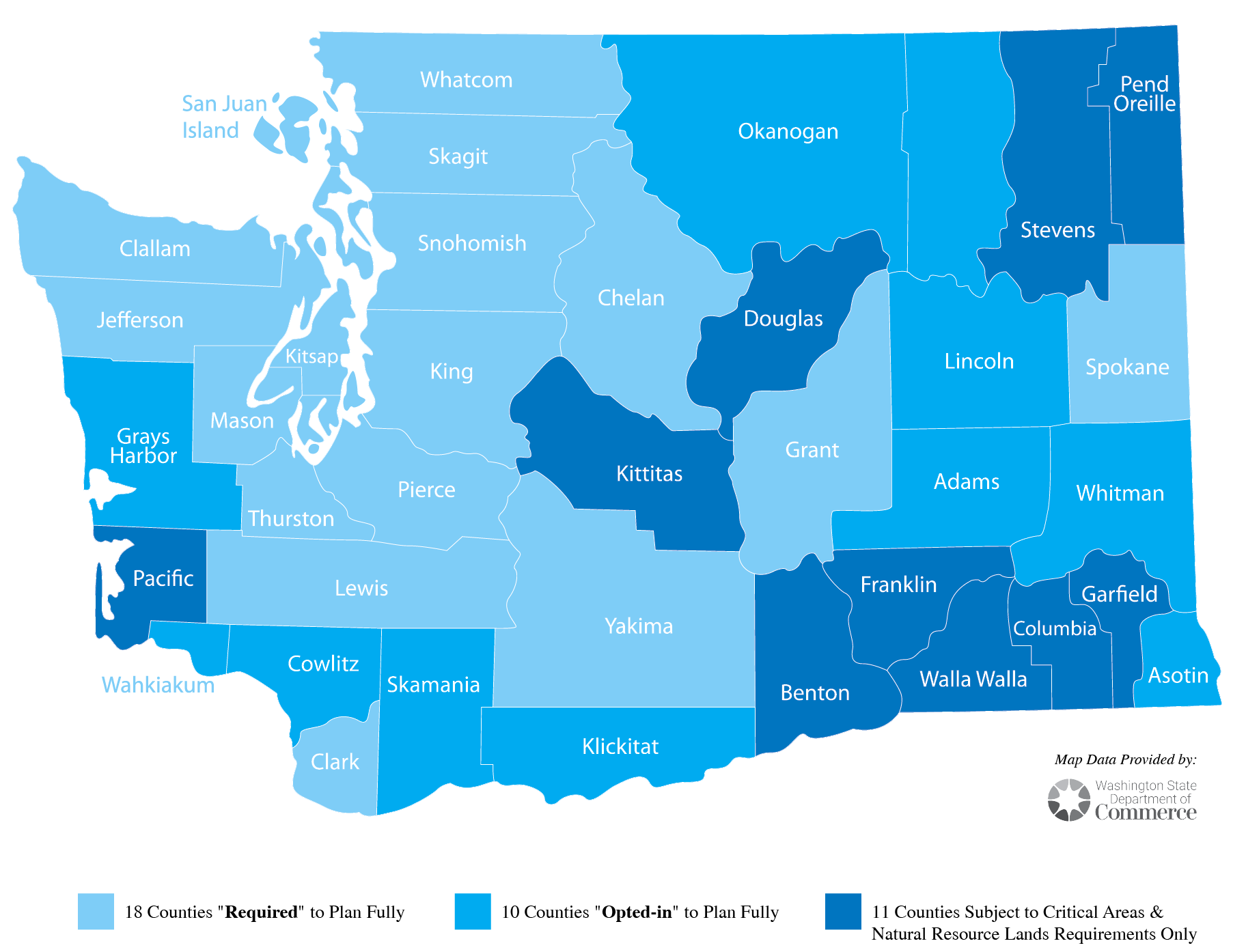Local Rental Housing Regulation Watch - 08
During our record-breaking summer temperature across the state, local governments are methodically reviewing and proposing updates to their comprehensive plans in accordance with the requirements of the state Growth Management Act (GMA) adopted in 1994/95. GMA requires local jurisdictions to adopt 10-year plans to meet housing targets, provide adequate infrastructure, and meet the other needs of the community.
A key focus for most every jurisdiction is updating their policy guidelines and zoning codes to implement House Bill 1110 passed during the 2023-24 state legislative session requiring the larger cities and counties to provide for “middle housing”.
While cities and counties are focused on their comprehensive plans, summer vacations, and looming budget decisions we have seen no new rental regulations being promulgated at the local level, however policy direction is being discussed and, in some cases, embedded in many of these local comprehensive plans such as support for rent control and new tenant protection measures that we expect to see as new ordinances in 2025.
What is Middle Housing?
Middle housing, also known as "missing middle" housing, refers to a range of multi-unit or clustered housing types that are compatible in scale with single-family homes. These types provide diverse housing options and foster walkable neighborhoods, filling the gap between high-density apartment buildings and low-density single-family homes. Examples of middle housing include duplexes, triplexes, fourplexes, townhouses, courtyard apartments, bungalow courts, and accessory dwelling units (ADUs).
Planners favor middle housing because it offers a balanced approach to increasing urban density while preserving neighborhood character. It provides affordable and diverse housing options, addressing the needs of various household types, including singles, families, and seniors. Middle housing promotes walkability and supports local businesses by fostering mixed-use communities. It efficiently uses existing infrastructure and reduces urban sprawl, contributing to environmental sustainability. Additionally, middle housing helps mitigate the housing crisis by increasing supply in desirable areas without the need for large-scale developments, thus maintaining a human-scaled, community-oriented environment.
Community reactions to missing middle zoning are mixed. Supporters appreciate the increased housing diversity and affordability, which can make neighborhoods more inclusive and vibrant. They value the potential for reduced urban sprawl and the promotion of walkable, mixed-use communities. However, opponents often express concerns about changes in neighborhood character, increased traffic, and strain on existing infrastructure. Some worry that new developments might lead to higher property taxes or displacement of long-term residents. Effective community engagement and thoughtful planning are crucial to addressing these concerns and ensuring that missing middle zoning benefits everyone.
In the next few months, we shall see how cities and counties balance these interests. In the meantime, you may want to track your local jurisdiction’s website to see what they may doing and to sign up for their updates.
Counties Required to Plan Under the GMA:
- Benton County
- Chelan County
- Clark County
- Douglas County
- Franklin County
- Grant County
- Island County
- Jefferson County
- King County
- Kitsap County
- Kittitas County
- Lewis County
- Mason County
- Pierce County
- San Juan County
- Skagit County
- Snohomish County
- Spokane County
- Thurston County
- Walla Walla County
- Whatcom County
- Yakima County

Selected Cities Required to Plan Under the GMA:
——
King County:
• Seattle
• Bellevue
• Kent
• Renton
• Federal Way
• Kirkland
• Redmond
• Shoreline
• Sammamish
——
Pierce County:
• Tacoma
• Lakewood
• Puyallup
• University Place
• Bonney Lake
• Sumner
——
Spokane County:
• Spokane
• Spokane Valley
——
Snohomish County:
• Everett
• Marysville
• Lynnwood
• Edmonds
• Bothell (partly in King County)
• Mountlake Terrace
——
Clark County:
• Vancouver
• Camas
• Washougal
——
Thurston County:
• Olympia
• Lacey
• Tumwater
——
Kitsap County:
• Bremerton
• Poulsbo
• Bainbridge Island

